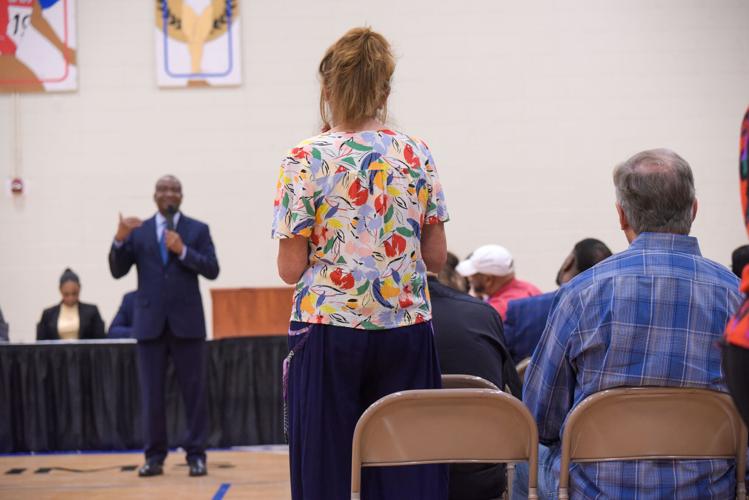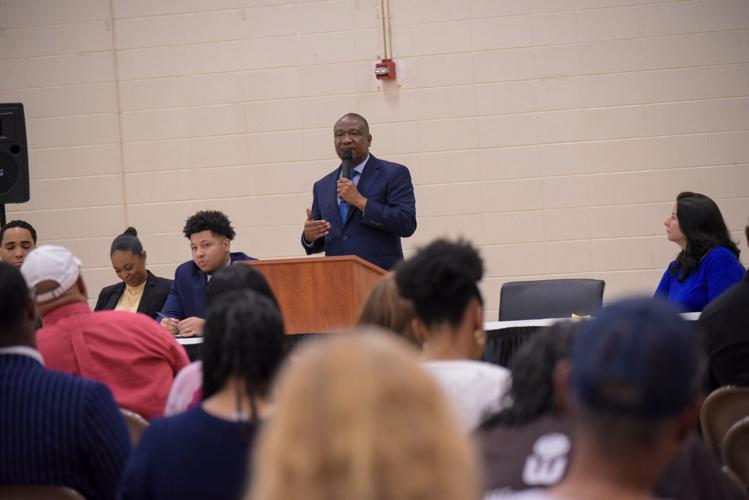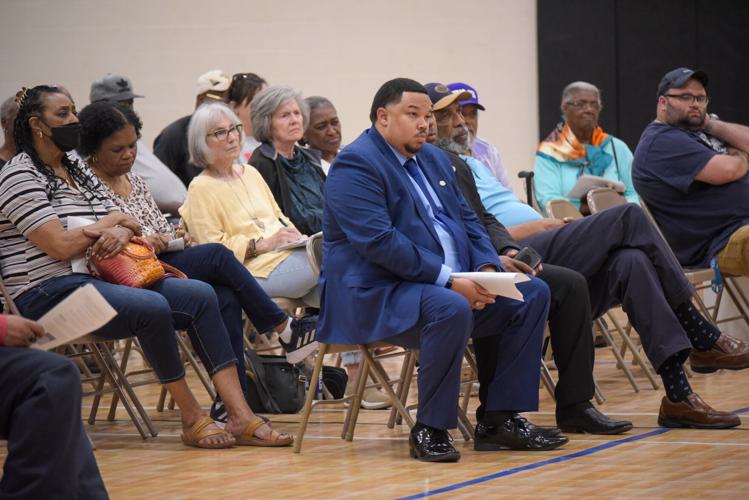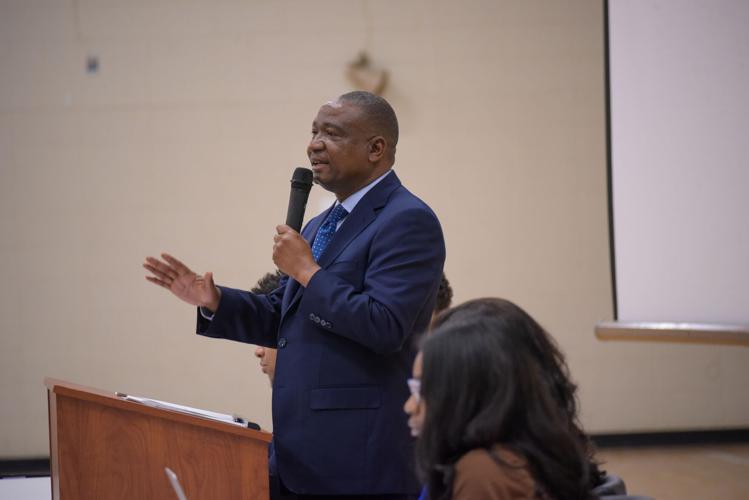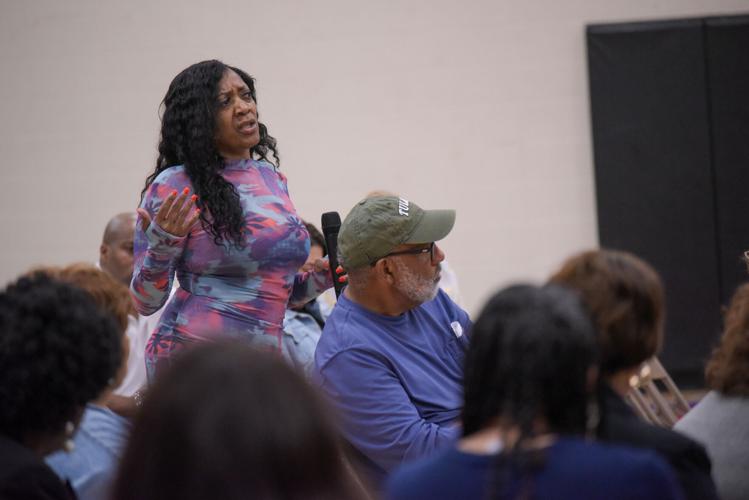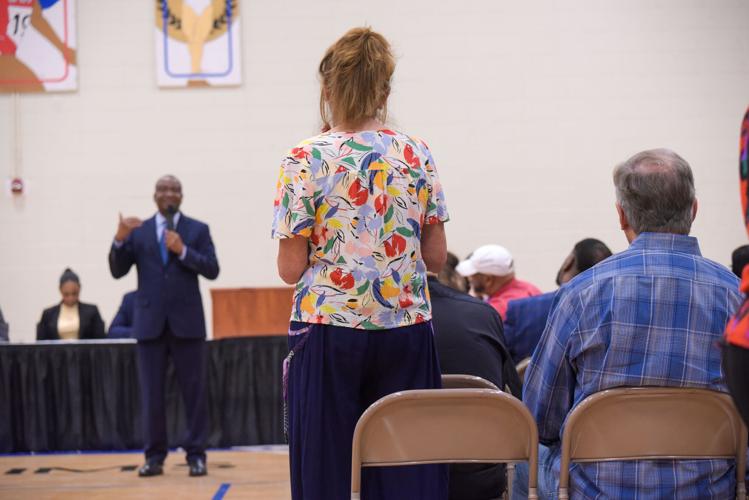U.S. Rep. Cleo Fields, of Louisiana's 6th District, said 206,000 residents in his district are under threat of losing Medicaid coverage if the current budget resolution becomes a reality.
Fields was elected in November to a redrawn second majority-Black district that includes parts of Lafayette and Baton Rouge and stretches to Shreveport.
The congressman met with Lafayette residents Monday to talk about what is happening in Washington, D.C., and the impacts on Louisiana. Fields spoke on possible cuts to Medicaid, the effects of tariffs on the state and Congress' willingness to stand up to President Donald Trump.
The crowd, made up largely of seniors, voiced their concerns over cuts to Medicaid. The state might have outsized reason to be concerned; Louisiana overall ranks second in the nation for Medicaid enrollment, at 32% or 1.6 million residents.
A recently passed House budget resolution directs the House Energy and Commerce Committee, which has jurisdiction over Medicaid, to cut $880 billion over the next 10 years. Despite the resolution not mentioning Medicaid services, some experts say cuts like that are not possible without touching the program.
"We use a whole bunch of Medicaid. Why? Because we have a lot of poor people in this state." Fields said. "I'm trying to convince every member of Congress from Louisiana that we can just not afford to lose Medicaid. These are people with disabilities, these are elderly people, and to cut $880 billion would be, in my view, unconscionable."
Those cuts could end up having a larger impact on rural residents and hospitals, according to the National Rural Health Association, which called the program a "lifeline." NRHA also noted that rural residents are far more likely to participate in Medicaid, with 20% of adults and 40% of children enrolled in Medicaid and the Children's Health Insurance Program.
Tariffs and agriculture
Discussion on tariffs and their effect on the state, particularly on farmers, also came up during the discussion.
Trump's sweeping tariffs were paused for 90 days, barring a 145% rate on China. The looming threat of retaliation from countries could hurt Louisiana's export-driven agricultural sphere, said Fields.
In 2023, Louisiana exported around $1.8 billion in crops, according to U.S. Department of Agriculture Economic Research Service data. Soybeans and rice alone accounted for $617 million.
In Trump's first term, a trade war with China led to the bailout of American farmers to the tune of $23 billion. Fields did not say whether he would support another bailout but did say he would do everything he could do to help farmers.
"[Farmers] are feeling squeezed. You're selling out of the states; that's where most of our products are sold." Fields said, "Farmers need to let their voice be heard through their members of Congress."
Overall, the state exported about $87 billion worth of goods, making it the fourth largest exporter in the U.S. in 2024 and accounting for 32% of the state's GDP in 2023, according to White House data. China is the state's largest market.
Tariffs should be the purview of Congress instead of being issued through executive order, Fields said. The congressman used time with residents to urge Congress to impose their power over the issuance of tariffs.
"A lot of what this president is doing crosses the line. The Constitution gives us the 100% carte blanche authority to do so. Congress has to assert itself, and if Congress asserts itself, we can stop a lot of this," Fields said.
The president can issue tariffs for national security reasons. House and Senate lawmakers have introduced legislation that rein in the president's powers but the bills are unlikely to pass.
'What's best for Louisiana'
Fields did not speak on the particular legislation at the discussion, but he did mention his willingness to work across the aisle with people like House Speaker Mike Johnson on issues.
"[Johnson] does what he feels is best," Fields said. "Hopefully, at some point, he and I end up on the same page. I just want to do what's best for Louisiana. I really don't care who the president is. I just want to do what's best for the citizens I represent."
"But I'll be honest with you, our democracy is at stake," Fields added.
Fields said he plans on introducing a bill that would forgive the loans of those going into the education field and stay in their state.
Louisiana has made gains in teacher retention, with teachers working in public schools growing by about 1,000 in 2024. Still, the profession has been dogged by some of the lowest wages in the nation.
Constituents used their time to ask Fields questions about Social Security, the expansion of Veterans Affairs services and the need for a hospital on the north side of the city.

